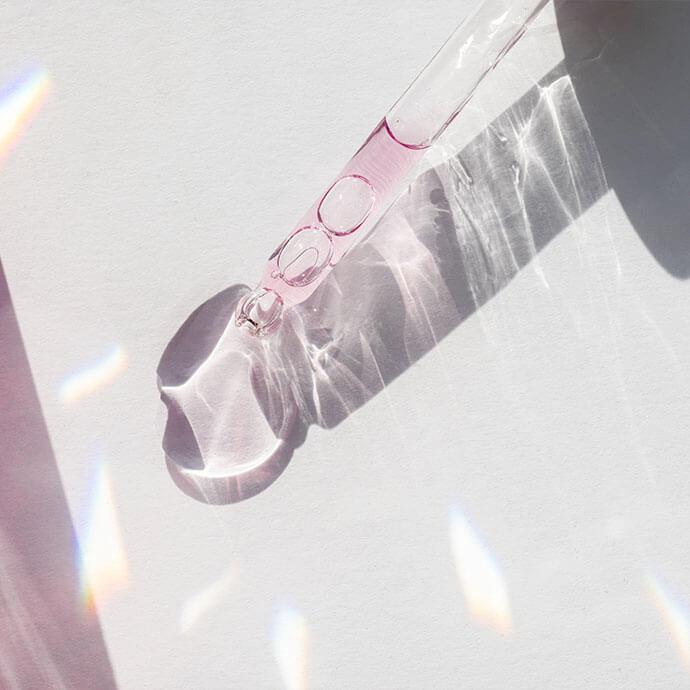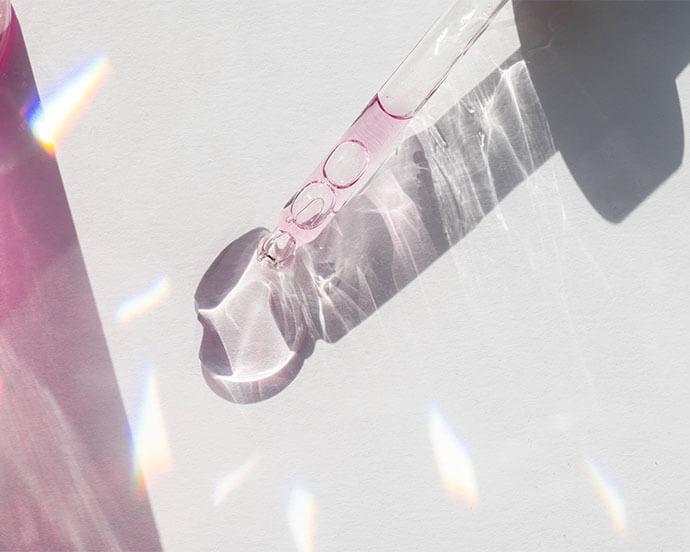What Is LHA? Why This Gentler Acid Might Be Key to Solving Your Acne Puzzle



Brittany Leitner


Photo by Olga Shumytskaya / Getty Images
You may have thought your days of studying chemical compounds were behind you when you graduated from high school, but with the skincare industry dominating news outlets and social media feeds, scientific-sounding ingredients have now become part of our everyday vernacular. Of course, there’s retinol and hyaluronic acid that pretty much everyone from your little sister to your grandma has heard of. But there are even more deep-divey skincare ingredients, like lipohydroxy acid, that you might not know yet.
Well today, class is in session—and it’s all about lipohydroxy acids, aka LHAs. This buzzy skincare ingredient can be used as a powerful tool in your skincare arsenal, as it can help clear up acne-dotted skin and even make skin appear more youthful at the same time. For everything you need to know about LHAs and if you should incorporate them into your routine, we tapped Manhattan dermatologist Brendan Camp, MD, to get the lowdown.


It's about glam time you treated yourself.
MEET THE EXPERT
Brendan Camp, MD, is double board-certified in dermatology and dermatopathology and sees patients at MDCS Dermatology: Medical Dermatology & Cosmetic Surgery in New York City.
OK, So What Is LHA?
If you’ve ever had a pimple, you’ve probably used salicylic acid. It’s one of the top ingredients in acne spot treatments and cleansers for oily to acne-prone skin. As it turns out, LHA is just a gentler, more tolerable derivative of the salicylic acid you know and love.
“Lipohydroxy acid (LHA) is a derivative of salicylic acid, a beta-hydroxy acid found in skincare products,” explains Dr. Camp. Beta hydroxy acids are oil-soluble acids that help to target excess oil on the skin’s surface and dead skin cells sitting on the skin’s surface. LHAs are “lipophilic compounds, meaning they’re able to dissolve and therefore interact with oils on the skin. LHA is also sometimes referred to as capryloyl salicylic acid,” says Dr. Camp.
Benefits of Adding LHA (Lipohydroxy Acid) to Your Skincare Routine
There are a few benefits of LHAs in skincare, and if you have mild acne, LHA could be a great, non-irritating ingredient to add into your skincare lineup.
1. Promotes Cell Turnover
According to Dr. Camp, LHA helps promote cell turnover by getting to work on clearing out and eliminating dead skin cells from the surface of the skin. Since it has a larger molecular makeup than salicylic acid, it doesn’t go as deep into the skin’s surface. Therefore, you can use it to remove dead skin without the harsh, irritating side effects that typically come with using salicylic acid.
2. Decongests Pores
Like salicylic acid, LHA helps to remove excess dirt and oil from the pores.
3. Minimizes the Appearance of Pores
Once dirt and oil are removed from pores, pore size may appear smaller, according to Dr. Camp. This will also help prevent future breakouts caused by bacterias and oils on the skin.
4. Improves Skin’s Texture
Fewer breakouts means fewer bumps, acne scars, and dark spots. LHA can help regulate the skin’s surface and even out texture.
Why Is LHA So Good for Acne?
If you have sensitive skin and acne, LHA may be your new best friend. Just make sure to discuss adding this ingredient to your routine with your dermatologist to ensure it won’t harm your acne fight or interact poorly with another product you’re using.
“Acne is caused by a number of factors, including excess oil and irregular cell turnover that leads to clogged pores,” says Dr. Camp. “By removing excess oil and preventing the formation of blocked pores, LHA can treat and prevent acne,” he adds.
Can LHA Be Used With Other Acne Products?
Yes, but just make sure that if you have sensitive skin, your other acne products don’t contain salicylic acid, as combining that with LHA might be overwhelming for the skin all at once. “LHA may complement other exfoliating ingredients or toners that help remove excess dirt and residue from the skin surface, but it should be used with caution to avoid dryness, peeling, and irritation,” says Dr. Camp.
Can You Use LHA If You Have Sensitive Skin?
LHA could be the perfect acne-fighting ingredient to use if you have sensitive skin, since it does not penetrate skin as deeply as salicylic acid does. However, “because LHA does not penetrate skin as deeply as salicylic acid, it may not be as effective for the treatment of acne, despite it being a better-tolerated ingredient,” says Dr. Camp. You might feel more comfortable trying LHA for acne if you have sensitive skin, but you should always refer to your dermatologist before adding in a new product/ingredient into your routine.
Final Thoughts
If you have mild acne and sensitive skin, choosing skincare products that contain LHA can be a great option. Just keep in mind that if your acne doesn’t go away after around four weeks to a few months, you might want to discuss alternative options with your dermatologist.
Liked this post? Share!
Related Stories


Ingredient Index
Top Anti-Inflammatory Ingredients to Soothe Irritated Skin
Published on Aug 5, 2025 • 6 min read


Ingredient Index
Iron Oxides Are the Skin-Protecting Ingredients Your Routine Has Been Waiting For
Published on Mar 14, 2022 • 3 min read


Ingredient Index
Galactomyces Is the Latest Skincare Ingredient You’re About to See Everywhere
Published on Jul 10, 2025 • 3 min read


Ingredient Index
Everything to Know About the Gentle Healing Ingredient Bisabolol
Published on Jul 10, 2025 • 6 min read


Ingredient Index
Yes, You Should Be Using Adapalene If You Have Acne
Published on Jul 10, 2025 • 4 min read


Ingredient Index
What Is Fulvic Acid? Everything to Know About the Rising Ayurvedic Skincare Ingredient
Published on Jul 10, 2025 • 4 min read


Ingredient Index
Glow From the Inside Out With These Skin-Loving Foods
Published on Jun 25, 2025 • 9 min read


Ingredient Index
Meet AHAs: Your Secret Weapon for Glowing Skin
Published on May 28, 2025 • 9 min read


Beauty Picked Just for You
Get 5 products worth up to $70
Plus exclusive access to epic deals up to 80% off
Starting at just $14/month. Cancel anytime.